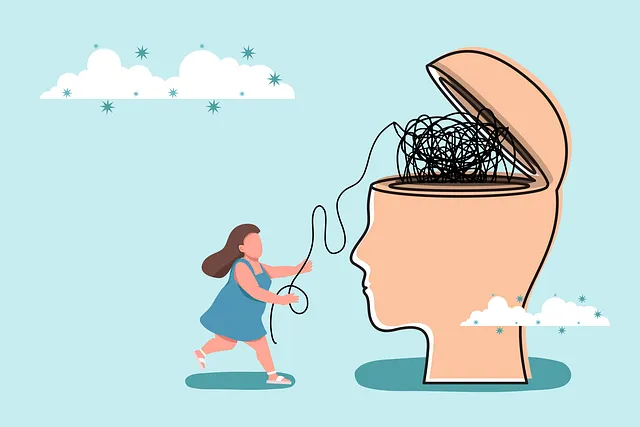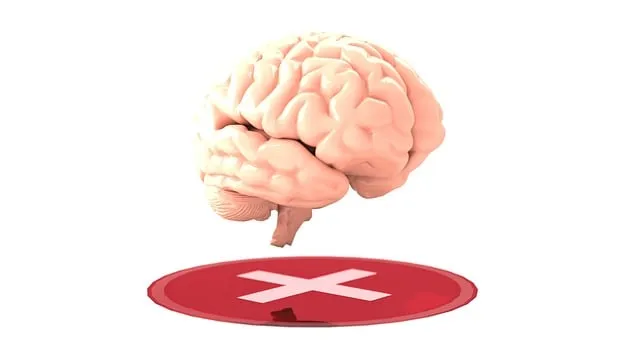Media portrayal significantly shapes public understanding of mental health, with positive, accurate coverage encouraging help-seeking behaviors and reducing stigma, while negative depictions can marginalize individuals. Lakewood Kaiser Permanente behavioral health services leads the charge against stigmatized narratives by promoting diverse, nuanced stories that reflect the complexity of mental health experiences, emphasizing recovery, resilience, and professional support systems. Through educational communication strategies, they aim to improve community emotional well-being while advocating for cultural competency training and mental health policy changes. Collaboration with media outlets is crucial to dispel stereotypes, promote accurate portrayals, and empower individuals facing mental illness by fostering empathy and understanding.
“In an era where media plays a pivotal role in shaping public perception, accurate representation of mental illness is crucial. This article explores the profound impact of media portrayal on mental health stigma and offers solutions. We focus on the innovative approaches taken by Lakewood Kaiser Permanente’s behavioral health services, providing a blueprint for effective media engagement. By examining current strategies and collaborating with healthcare providers, we aim to foster positive change in how mental illnesses are represented, ultimately improving support systems and reducing stigma.”
- Understanding the Impact of Media Portrayal on Mental Health Perception
- The Current State: Examining Lakewood Kaiser Permanente's Approach to Behavioral Health Services in Media
- Strategies for Accurate and Compassionate Mental Illness Representation
- Fostering Positive Change: Implementation and Collaboration with Healthcare Providers
Understanding the Impact of Media Portrayal on Mental Health Perception

Media portrayal plays a significant role in shaping public understanding and perceptions about mental health. The way mental illness is depicted in films, television shows, and news media can influence societal attitudes, often perpetuating stereotypes or, conversely, promoting awareness and empathy. At Lakewood Kaiser Permanente behavioral health services, we recognize the power of these representations and their potential to either hinder or support individuals struggling with their mental well-being.
Positive and accurate media coverage can encourage those facing similar challenges to seek help, foster understanding among the general public, and reduce the stigma associated with mental illness. On the contrary, negative or inaccurate portrayals can contribute to further marginalization and fear, deterring individuals from accessing essential Trauma Support Services and Resilience Building resources. Therefore, it is crucial for media platforms to present diverse narratives that reflect the complexity of mental health experiences, promote recovery stories, and highlight the availability of professional support systems like those offered at Lakewood Kaiser Permanente.
The Current State: Examining Lakewood Kaiser Permanente's Approach to Behavioral Health Services in Media

Lakewood Kaiser Permanente has taken a commendable step towards challenging the current narrative surrounding mental illness in media by prioritizing behavioral health services and their representation. In today’s digital age, where media plays a significant role in shaping societal perceptions, the organization recognizes the need for accurate and empathetic portrayals of mental health struggles. Their approach focuses on not just treating symptoms but also educating the public about various aspects of behavioral health through innovative communication strategies.
By integrating these strategies, Lakewood Kaiser Permanente aims to improve mood management and emotional well-being promotion techniques within their community. They understand that effective representation in media can reduce stigma, encourage help-seeking behaviors, and foster a more supportive environment for individuals facing mental illness. This proactive initiative sets a precedent for other healthcare providers, emphasizing the power of media as a tool for positive change in behavioral health services.
Strategies for Accurate and Compassionate Mental Illness Representation

Representing mental illness accurately and compassionately in media is paramount to fostering understanding and reducing stigma. This involves employing strategies that move beyond stereotypical portrayals. At Lakewood Kaiser Permanente behavioral health services, we advocate for nuanced narratives that reflect the diversity of experiences within the mental health spectrum. Such representation should include conversations about recovery, resilience, and the various therapeutic approaches available.
By integrating these perspectives, media can empower individuals facing mental illness, encouraging them to seek support. Moreover, it plays a crucial role in educating the public and promoting empathy. In this regard, Healthcare Provider Cultural Competency Training becomes essential, ensuring professionals are equipped to recognize and address diverse cultural needs within their practices. Equally vital is Mental Health Policy Analysis and Advocacy, which drives systemic changes, making quality behavioral health services more accessible to all communities.
Fostering Positive Change: Implementation and Collaboration with Healthcare Providers

In fostering positive change regarding mental illness representation in media, collaboration with healthcare providers is paramount. Lakewood Kaiser Permanente behavioral health services serve as a beacon for such partnerships, demonstrating the power of integrated care and education. By working together, media outlets and healthcare professionals can dispel stereotypes, promote accurate portrayals, and advocate for Emotional Well-being Promotion Techniques that support individuals navigating mental health challenges. This collaborative approach not only enhances public understanding but also encourages the adoption of effective Conflict Resolution Techniques and Self-Care Practices.
Through these partnerships, media platforms can shift narratives from stigmatization to empathy, ensuring stories that reflect the diversity of experiences with mental illness. Such initiatives are crucial in creating a more inclusive environment where individuals feel understood and empowered to seek help. By embracing collaborative efforts, media has the potential to revolutionize how society perceives and supports those dealing with mental health issues.
In conclusion, accurately representing mental illness in media is a powerful tool for challenging stigma and promoting understanding. By learning from initiatives like Lakewood Kaiser Permanente’s behavioral health services, we can create a more inclusive and supportive society. Implementing strategies for compassionate and accurate portrayal, alongside collaboration with healthcare providers, is key to fostering positive change in how mental health issues are perceived and addressed. Together, these efforts can revolutionize media representation, leading to better access to care and improved mental wellness for all.






